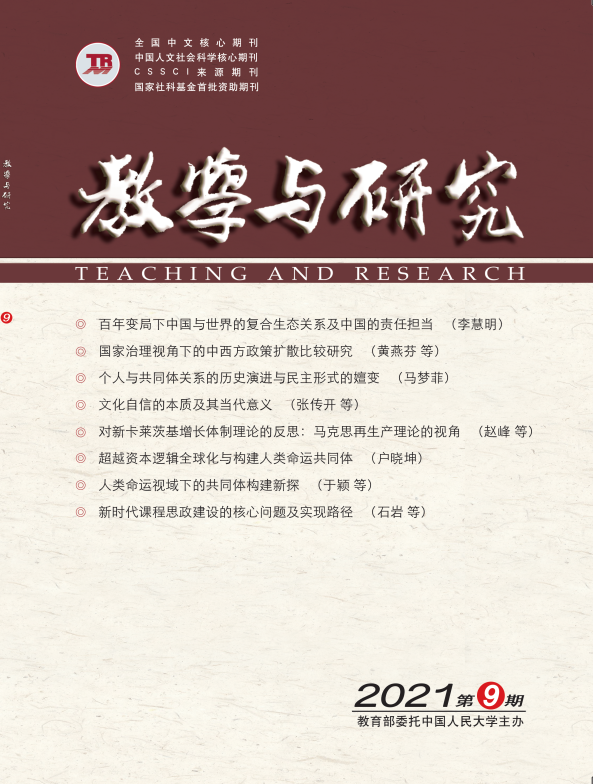|
|
The Complex Ecological Relations between China and the World and China's Missions under Profound Changes Unseen in a Century
Li Huiming
2021, 55 (9):
5-17.
Viewed from the development of the human society, the profound changes unseen in a century are fundamentally the crisis of the traditional development paradigm and the corresponding crisis of global climate change. The Earth has entered into the epoch of Anthropocene dominated by human beings, with human activities becoming the major driving force of the dynamic changes of the Earth system. Due to China's population and economic size, increasingly profound complex ecological relations have emerged between China and the world in terms of material exchanges, mutual institutional construction, and conceptual integration; China has become a crucial actor in influencing and reshaping a desirable ecological environment in the world. In such a context, four missions are associated with China's development and transformation. First, China needs to solve the major contradictions in the Chinese society in the new era so as to lay a solid foundation for the sustainable development of the Chinese nation. Second, it is expected to provide experiences and inspirations for the numerous late developing countries to explore a new development path, and expand the approaches to modernization. Third, it shall make its own contribution to global green development and lowcarbon transformation, and facilitate the transformation to a low or zerocarbon economic model in the world. And fourth, with its successful development transformation, it is expected to introduce a powerful impetus to a newtype world order in building a community with a shared future for mankind. When fulfilling these missions, China is constrained by its coalintensive energy structure, the rigid demand for economic growth, and some external factors such as the joint containment of China's scientific and technological innovation by the United States and Europe, and the return of political realism due to the shock of deglobalization and the COVID19 pandemic. China has to work at the strategic level of building a community with a shared future for mankind, keep in mind both domestic and international imperatives, and embrace the global trend of carbon neutrality in a more active way.
Related Articles |
Metrics
|



